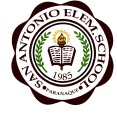GRADE 2 TEACHERS HELD THEIR 4TH ELLN DIGITAL LAC SESSION
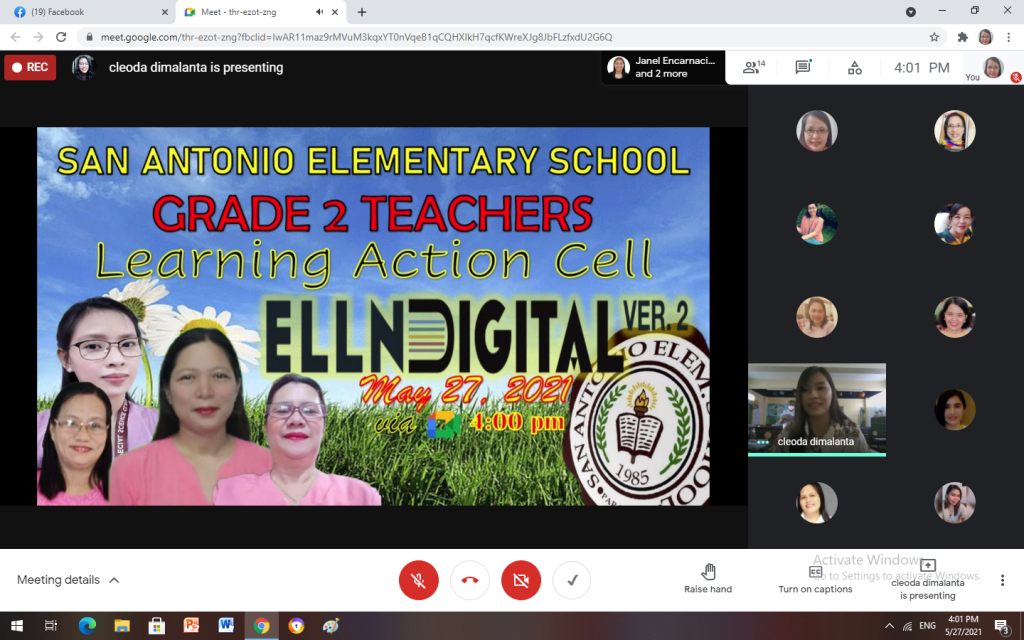
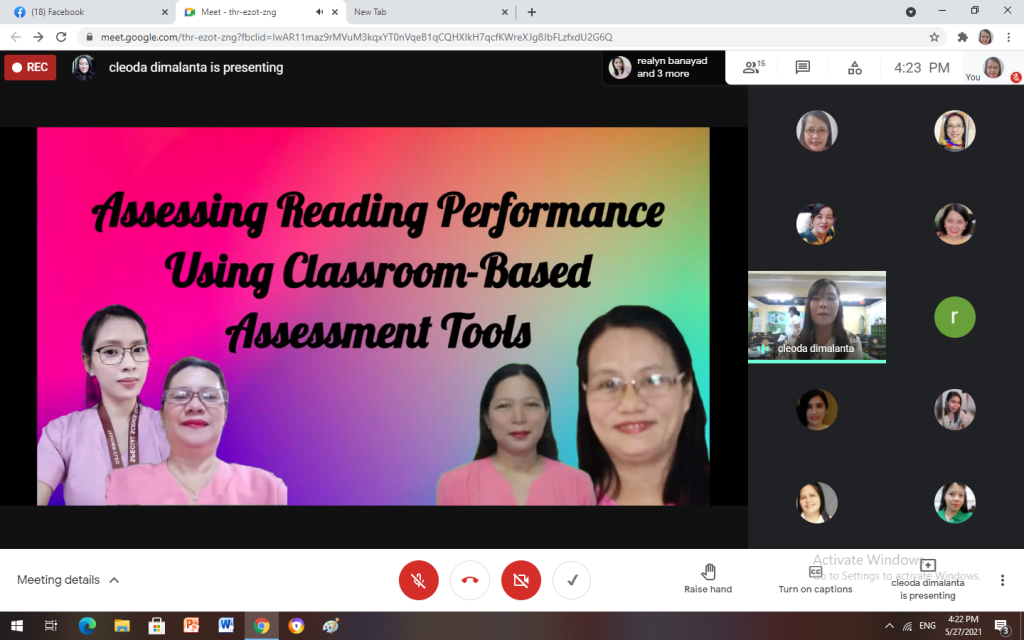
Ms. Cleoda Dimalanta, Mrs. Mary Jean Decncio, Mrs. Mae Caspillo and Mrs. Jocelyn Melindo facitated the 4th ELLN Digital LAC session of Grade 2 teachers.
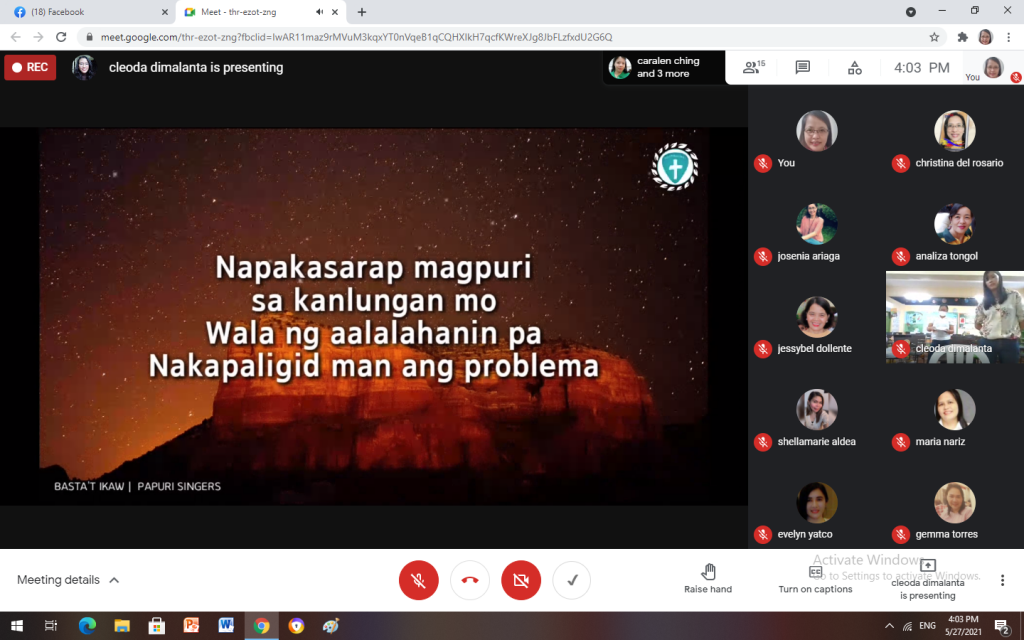
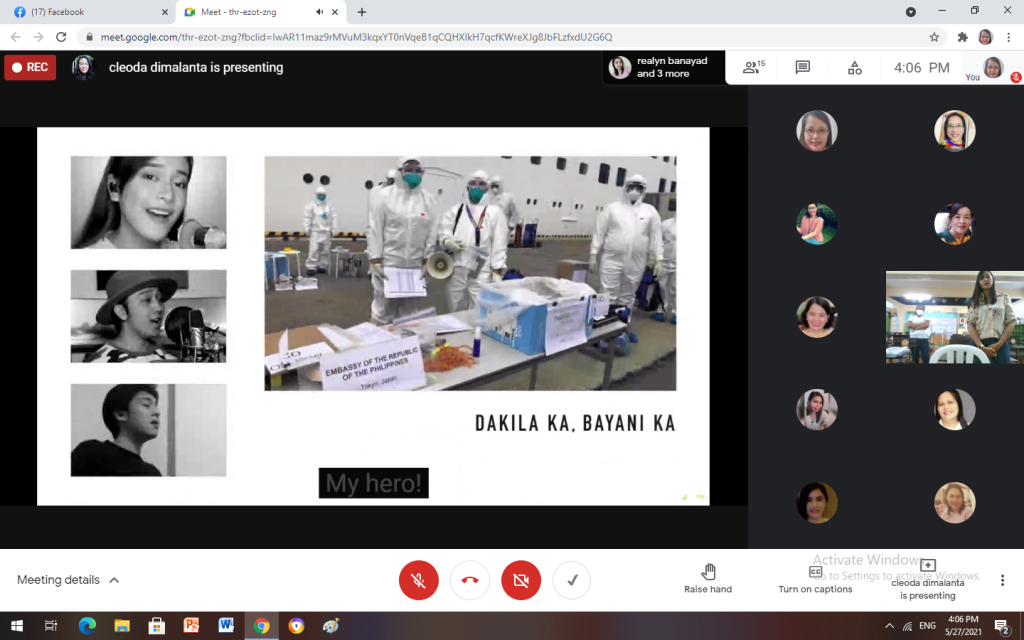
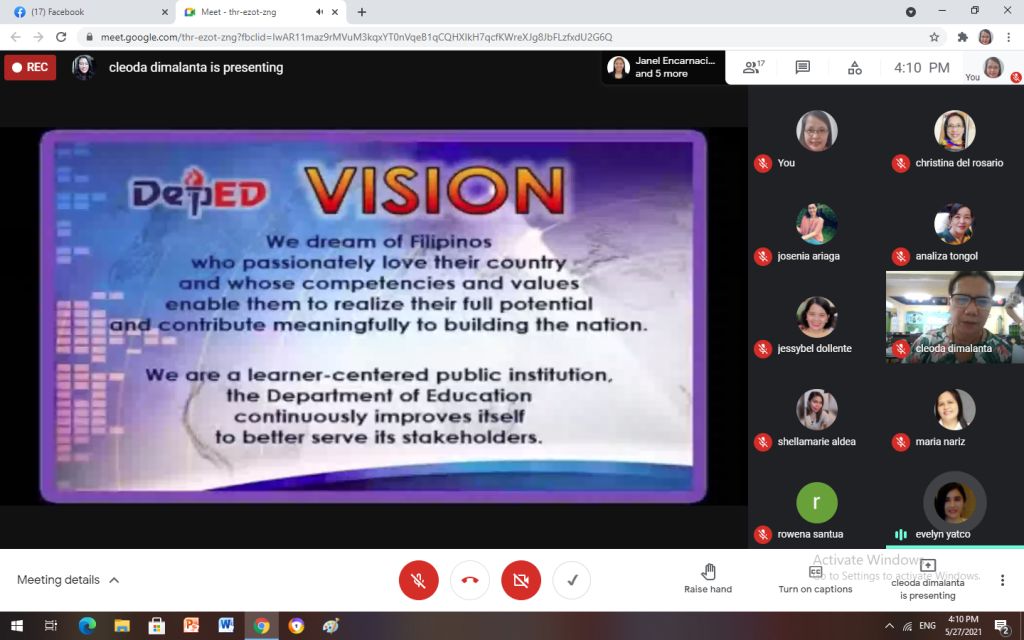
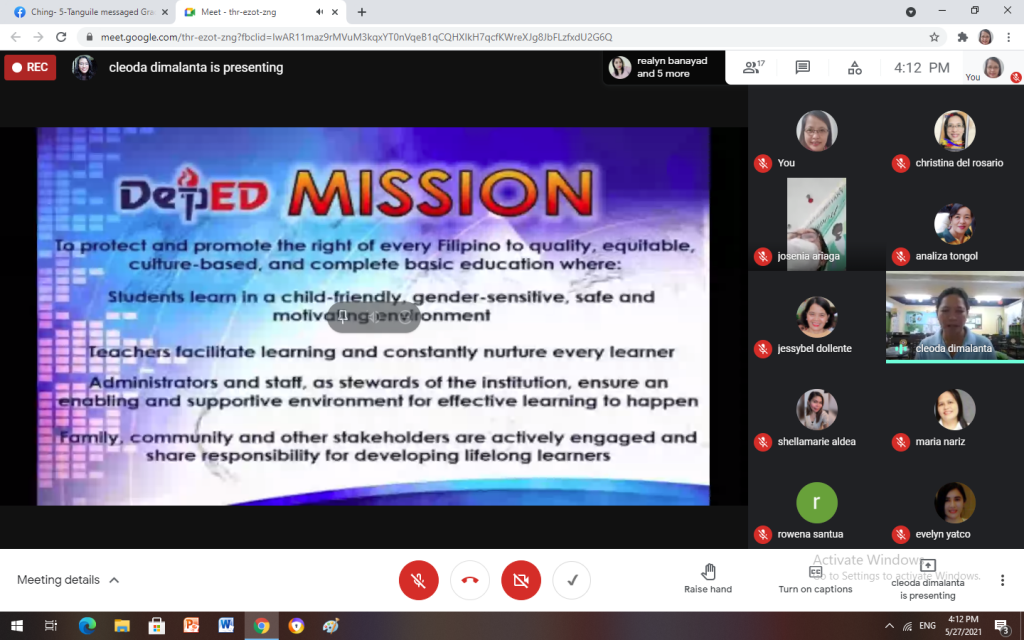
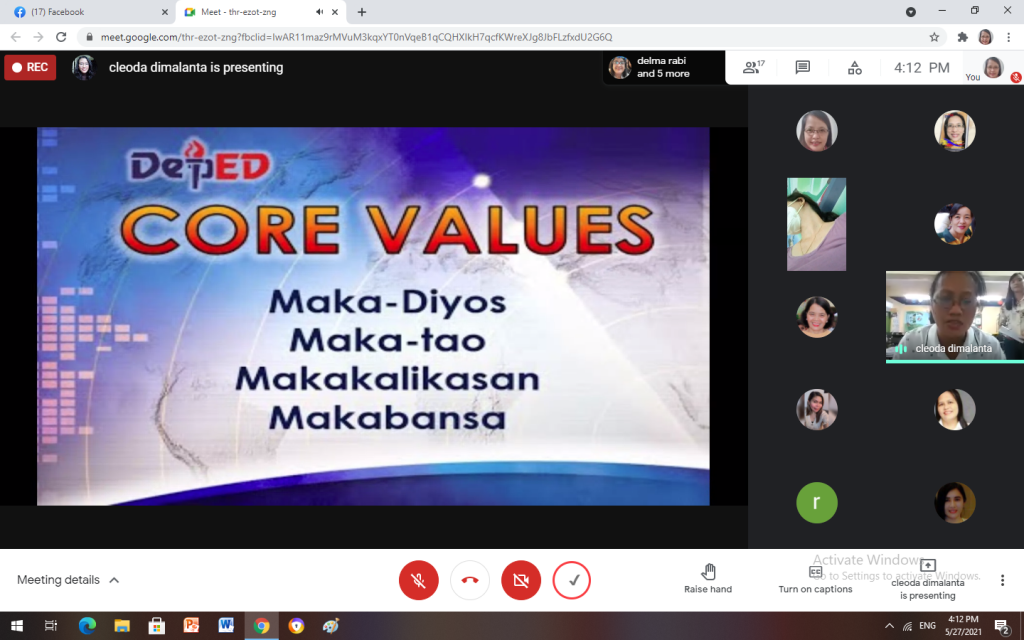
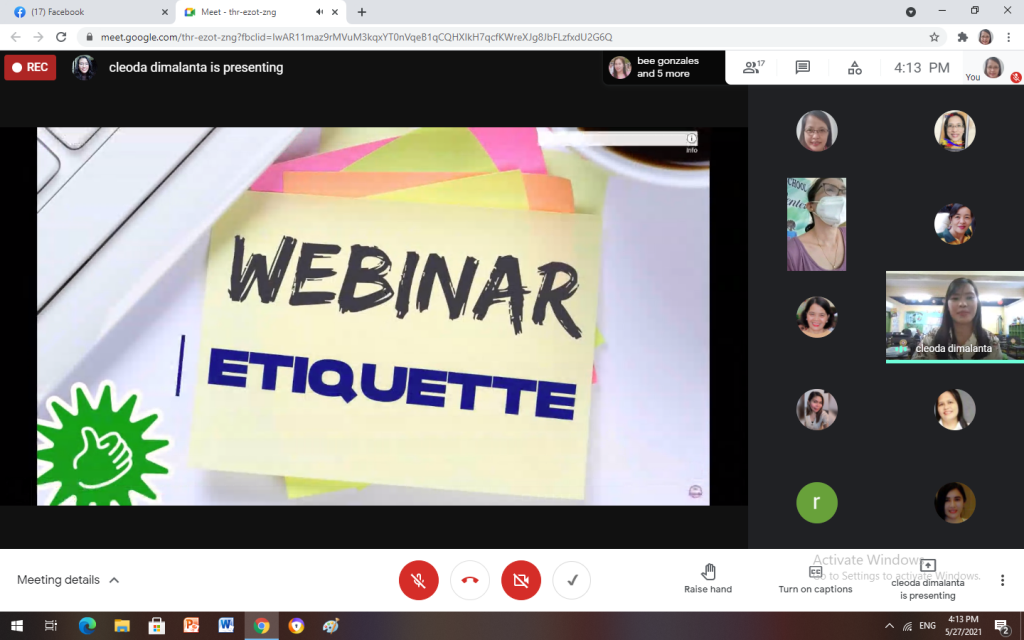
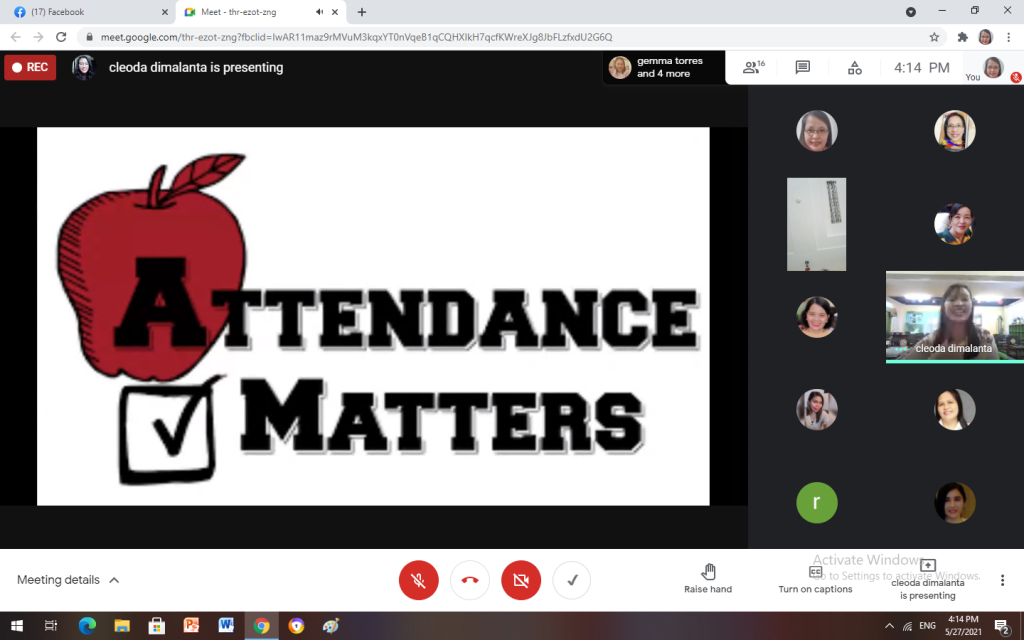
The preliminary activities during the 4th ELLN Digital LAC session.
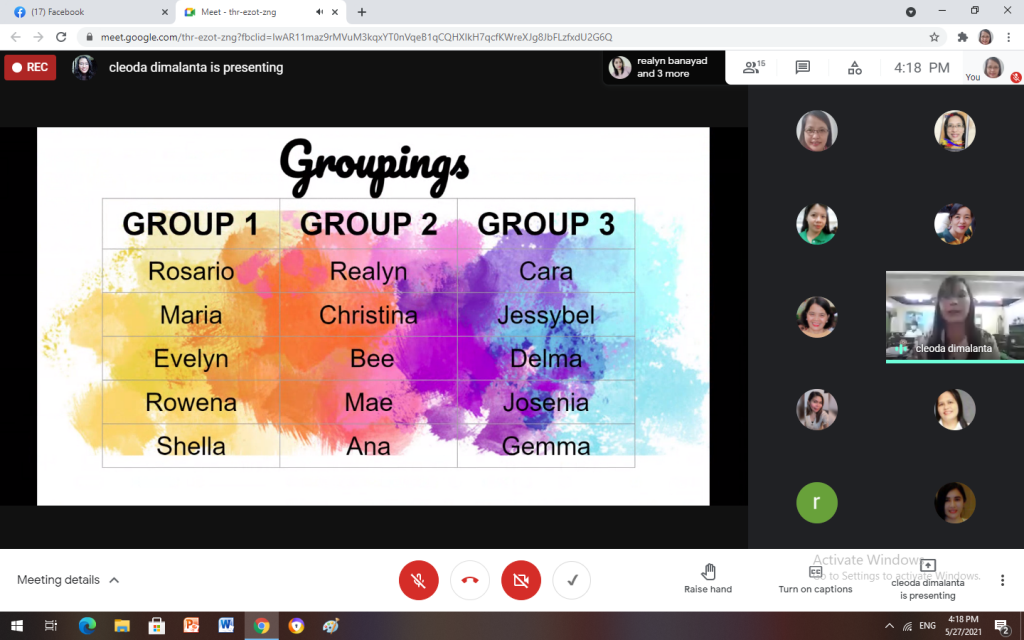
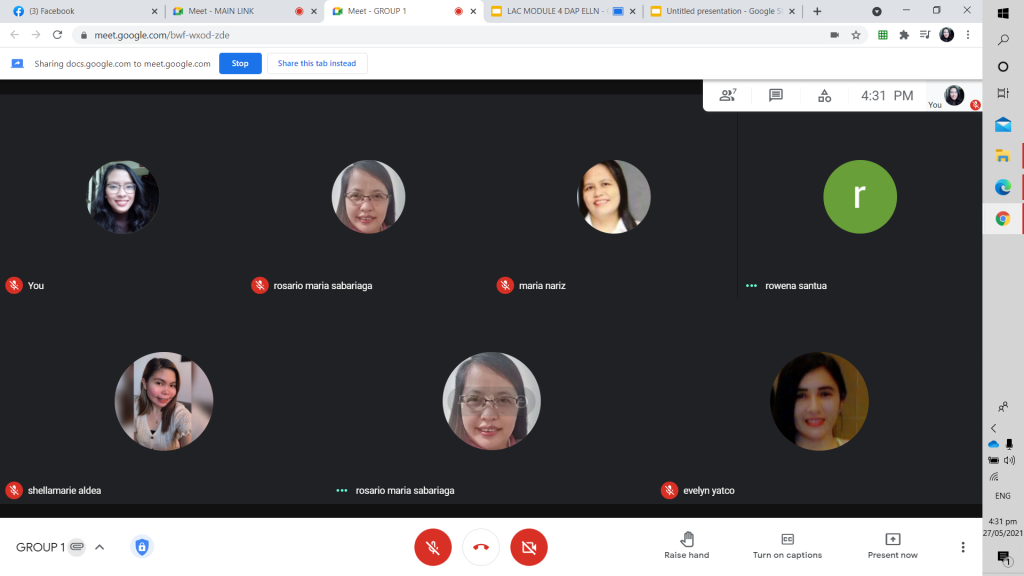
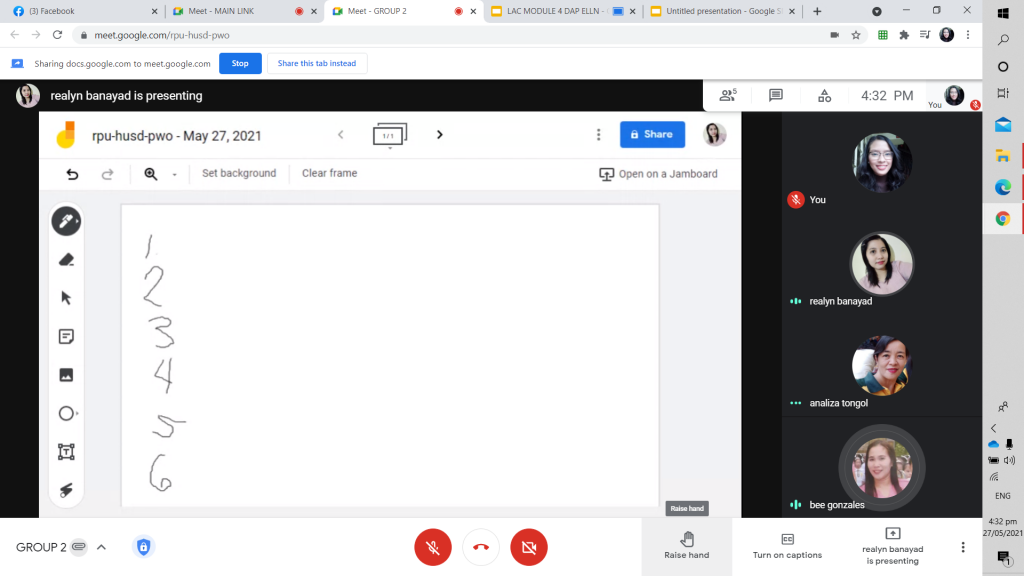
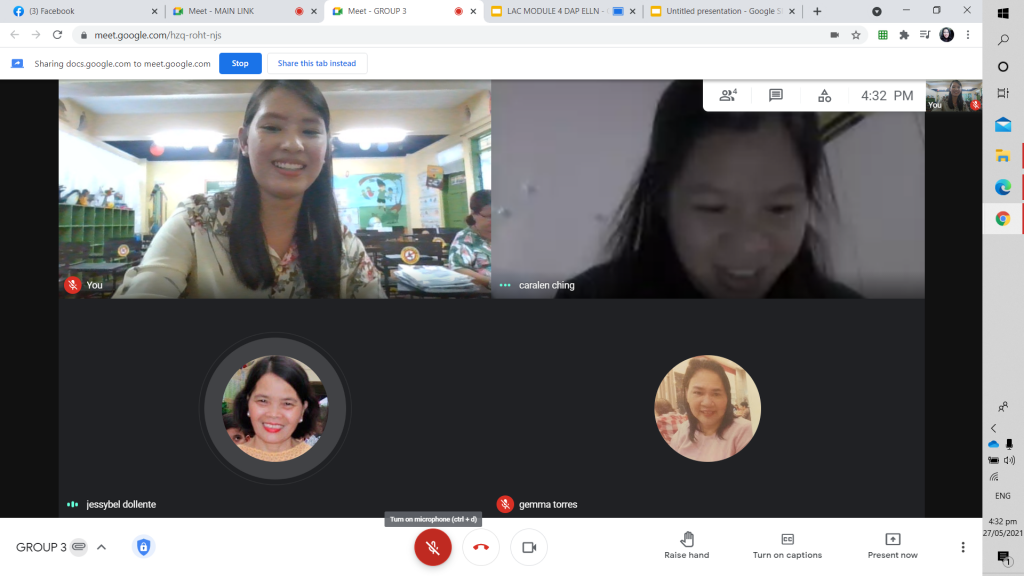
Groups 1 to 3 during group activity.
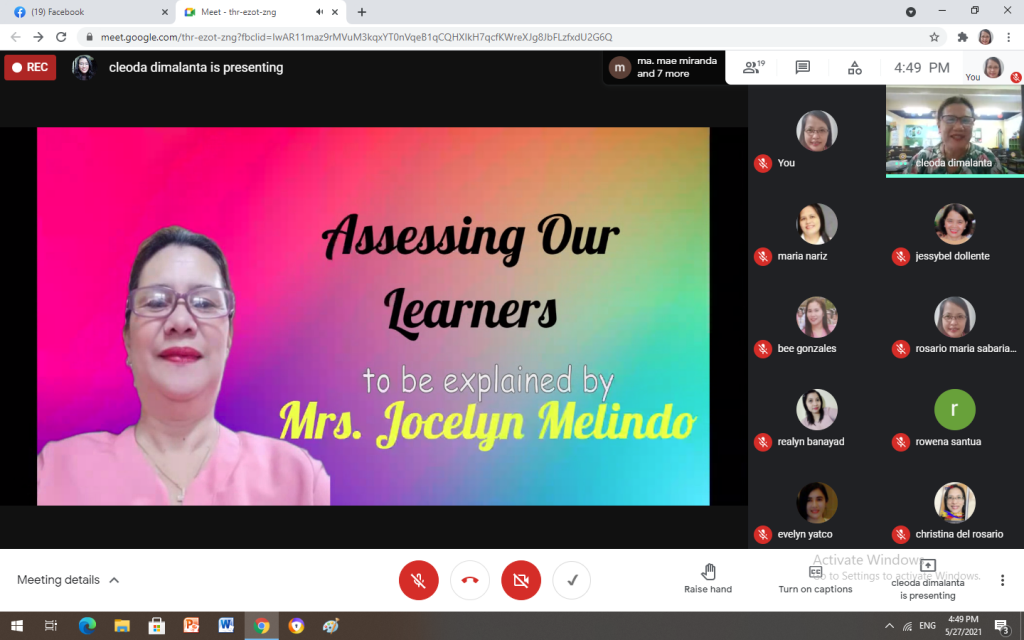
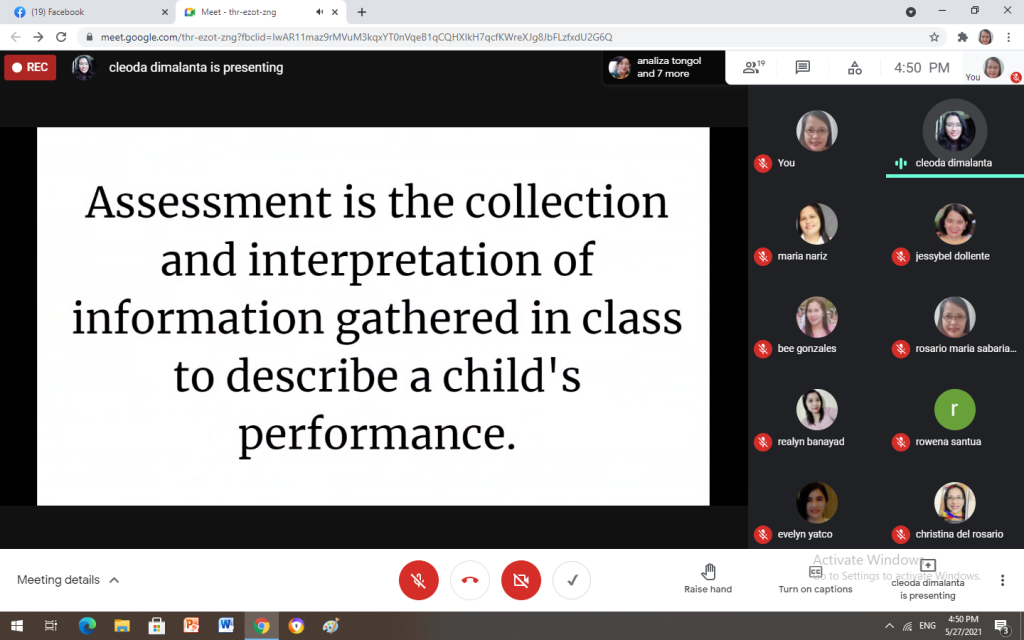
Mrs. Jocelyn Melindo explained about the assessment.
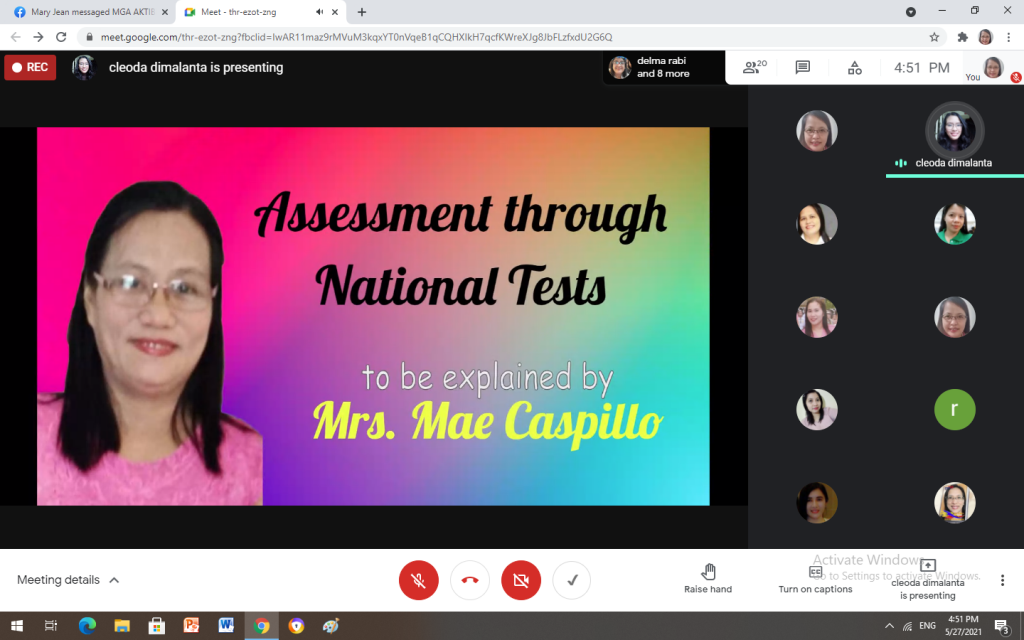
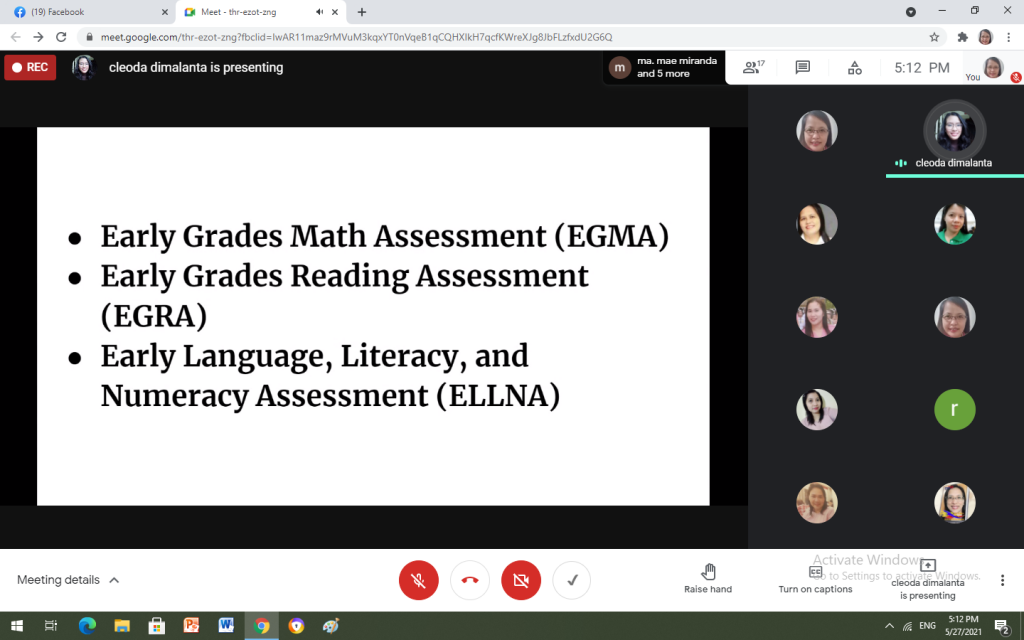
Mrs. Mae Caspillo explained the three national tests.
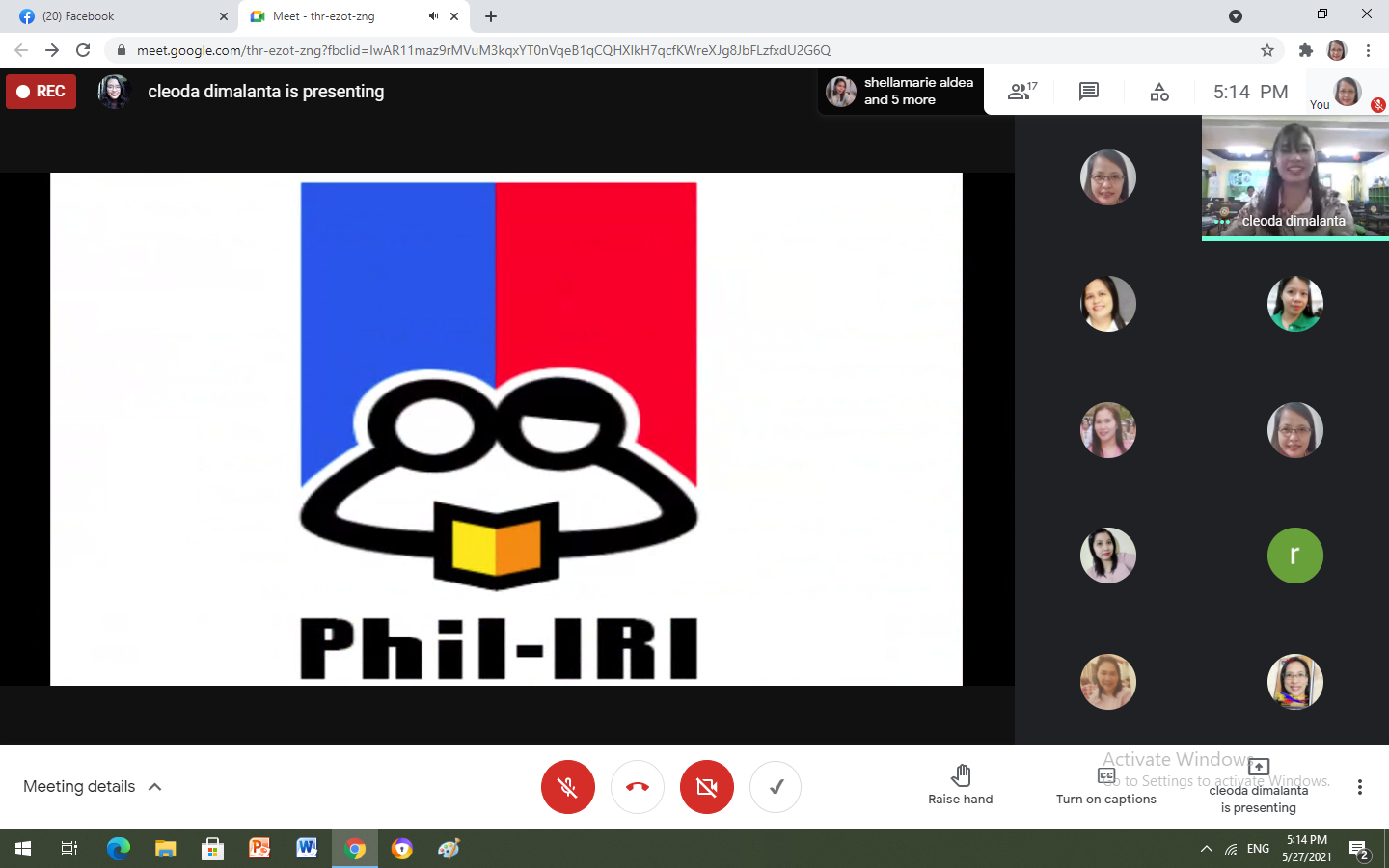
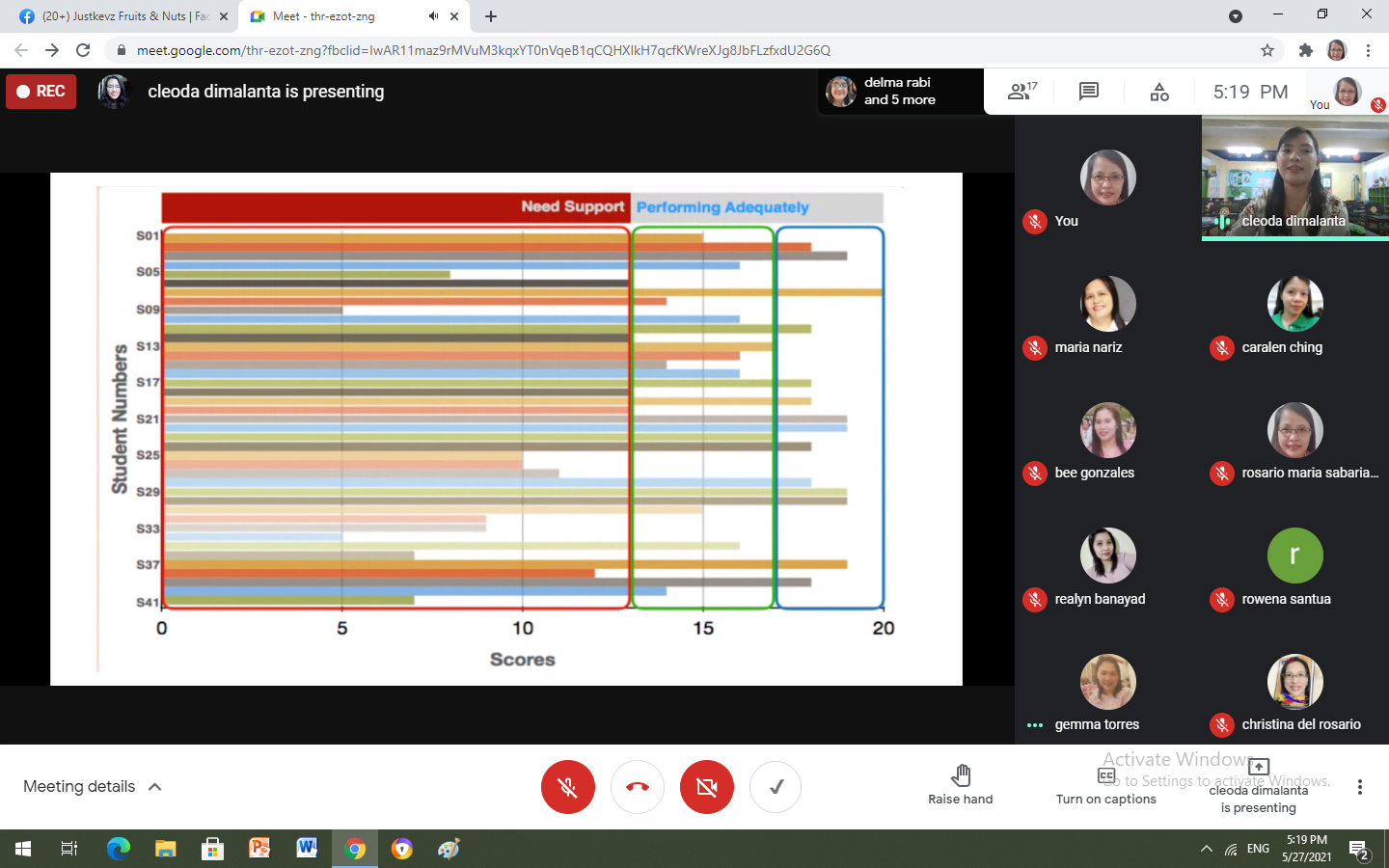
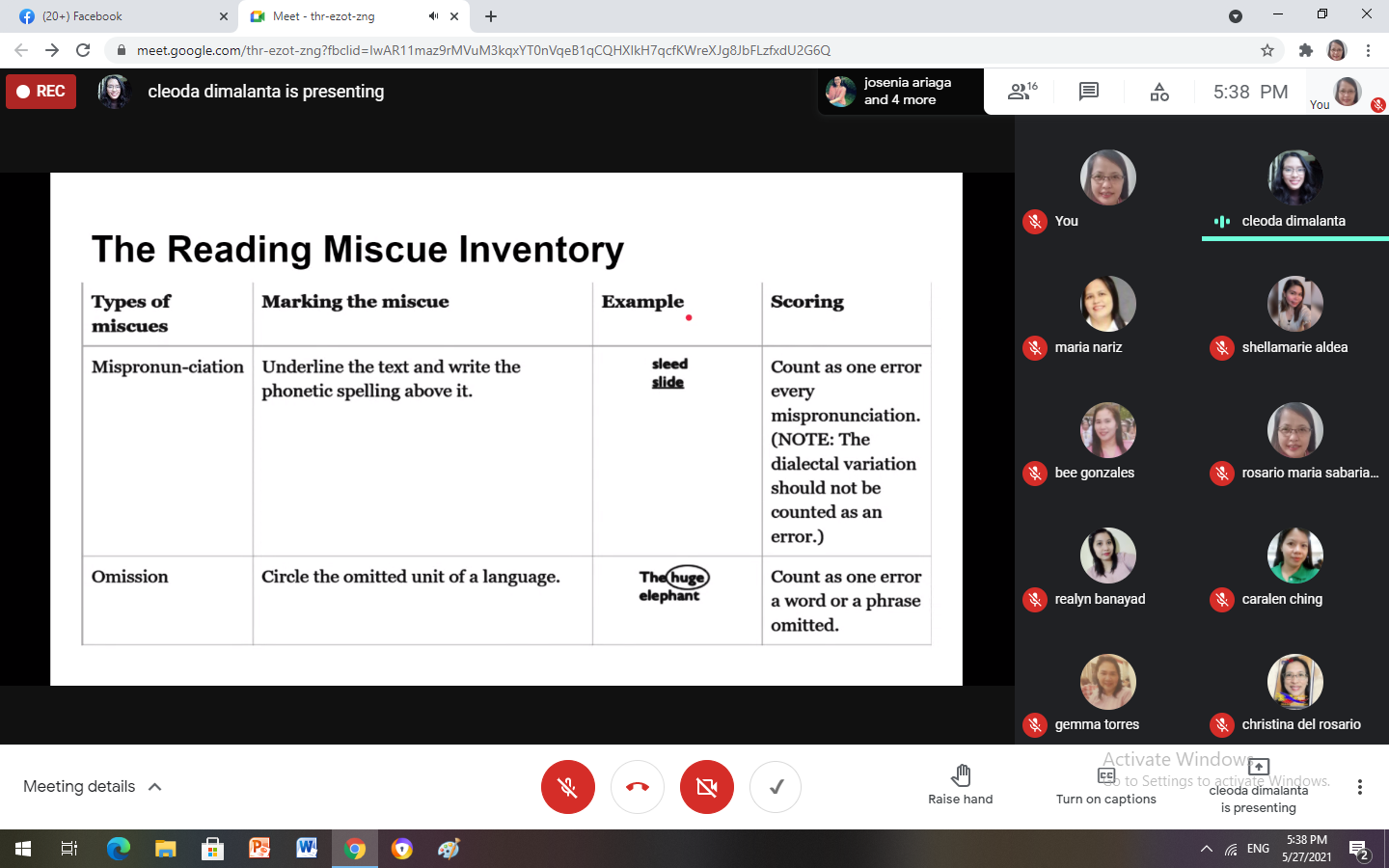
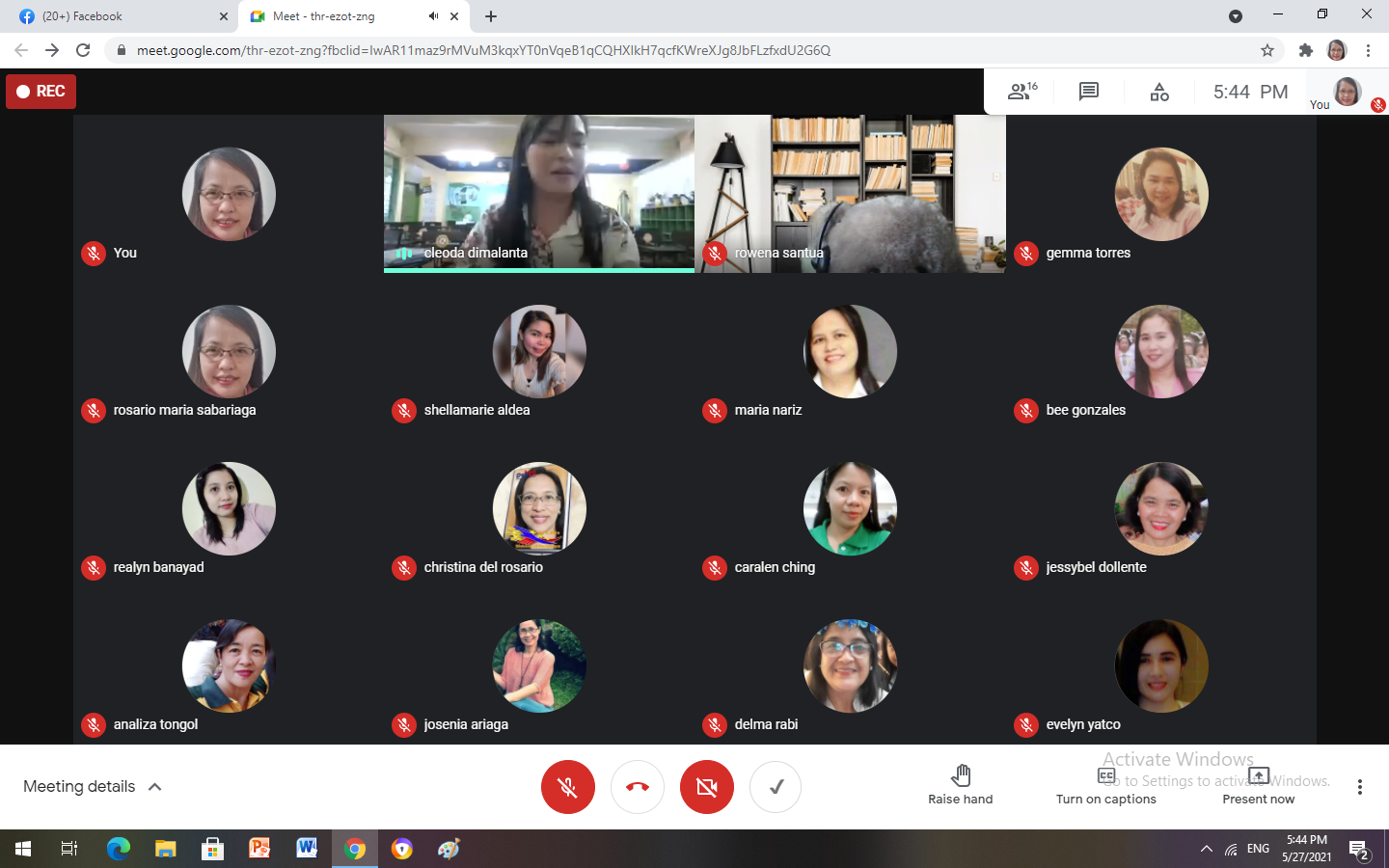
Ms. Cleoda Dimalanta and Mrs. Mary Jean Dencio explained and gave activities about Phil-IRI.
May 27, 2021 at 4:00 in the afternoon, Grade 2 teachers held their LAC session about Assessing Reading Performance Using Classroom-Based Assessment Tools via google meet. This session was facilitated by four Grade 2 teachers, Ms. Cleoda Dimalanta, Mrs. Mary Jean Dencio, Mrs. Jocelyn Melindo, and Mrs. Mae Caspillo. They prepared various activities to encourage the participants to listen actively.
The said session was started with a prayer and followed by singing a nationalistic song, both were through audiovisual presentations. The facilitators, Mrs. Dencio, Mrs. Melindo, and Mrs. Caspillo led the citing of DepED’s vision, mission, and core values. After that, the participants were reminded about the meeting etiquette that needs to be followed firmly to have a smooth flow of the session and for more future sessions. Next in checking attendance, the participants were asked to type their names in the chat box together with the name of their KALOKALIKE actresses. This was not just to entertain them but also to motivate them to participate actively during the entire session.
The facilitators planned to have a point system simple contest among the groups. The participants were grouped into three. The group who received the highest point was the winner. Below is the table of criteria which were considered:
PUNCTUALITY | 5 POINTS – FIRST GROUP |
| 5 POINTS – HIGHEST GROUP |
PARTICIPATION | ADDITIONAL 5 POINTS TO THE GROUP IF ONE OF THEIR MEMBERS ANSWERED FIRST |
Before the facilitators proceeded to the discussion, they gave an activity about recalling the steps in administering the Phil-IRI pre-test. Each group was given 10 minutes to accomplish the task. We used another google meet link for us to make groupings possible in an online LAC session. After 10 minutes, each group came back to the main link and presented their output.
Furthermore, the pre-activity “AGREE or DISAGREE” was answered collaboratively by the teachers.
Moreover, Mrs. Jocelyn Melindo started to explain about Assessing the Learners. She elaborated all about the assessment, its definition, and purposes. Assessment is very important not just for the good of the learners but also for the teachers. Through giving assessments, it is easy for us, teachers to identify the needs of the learners and it is easy for us to help the learners to improve.
In addition, Mrs. Mae Caspillo explained about the Assessment Through National Tests. In her discussion, she emphasized the three national tests used in instruction, the EGMA, EGRA, and ELLNA. These three assessments use to know the needs of the learners not just in numeracy but also in literacy.
Along with this, Ms. Cleoda Dimalanta and Mrs. Mary Jean Dencio continued the discussion. They discussed the Classroom-Based Assessment Tools for Literacy. They focused on discussing Philippine Informal Reading Inventory or easily known as Phil – IRI. This is a project of the Department of Education’s Bureau of Learning Delivery that directly targets the goal of making every Filipino learner a reader. They elaborated on the four stages in administering Phil-IRI. They explained how to interpret the results in conducting Group Screening Test (GST). To know if the participants really understand the topic, they gave another activity. The participants typed their answers in the chat box. Apart from this, they also elucidated the Reading Miscue Inventory (RMI). The same procedure to check the participants’ understanding, they also gave another activity related to RMI where the participants typed again their answers.
The entire session became significant to all Grade 2 teachers because all of us gained knowledge on how to assess our learners and by that, it will be easy for us to address the needs of our present learners and future learners as well.
– Cleoda E. Dimalanta, LPT
